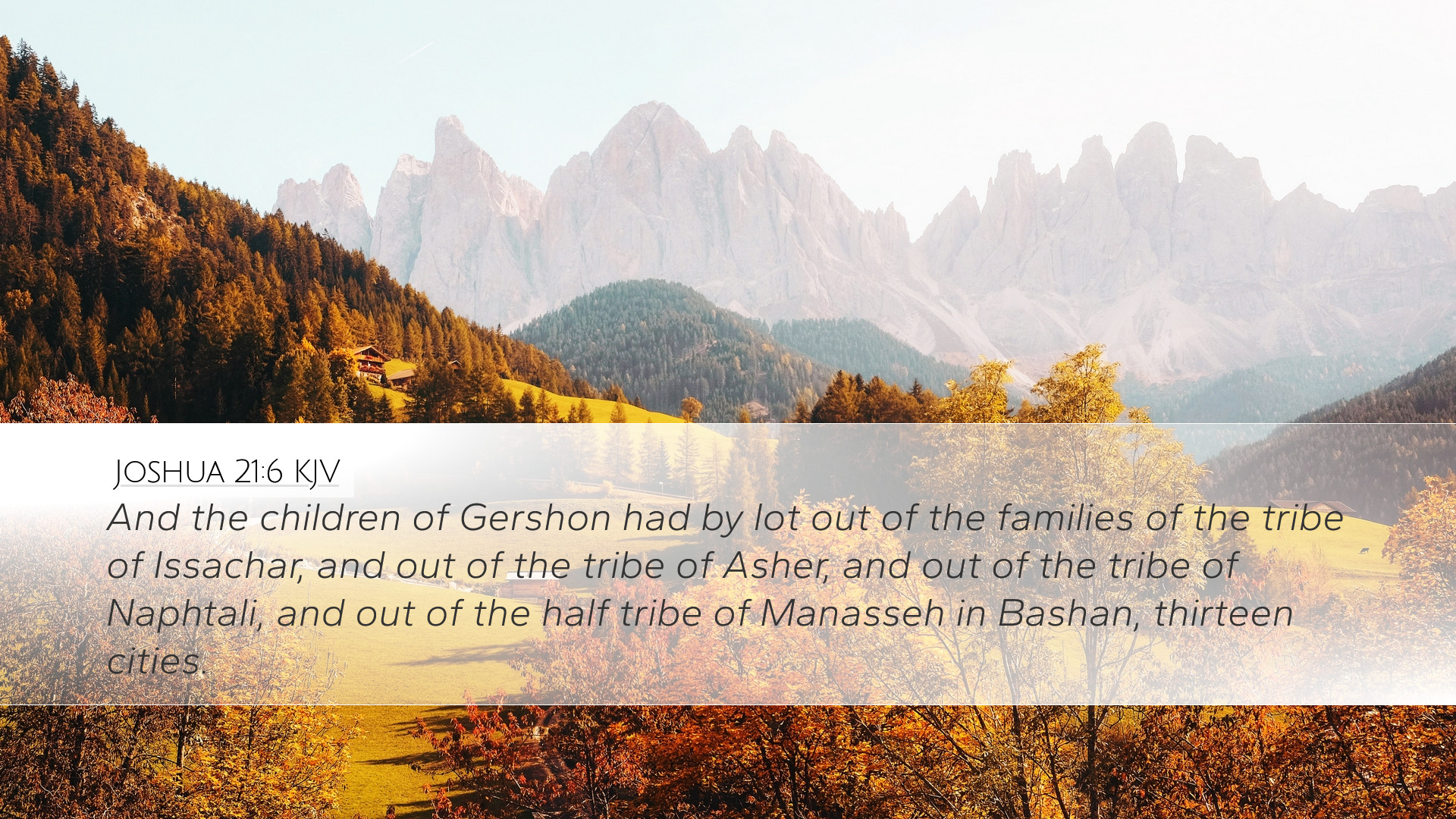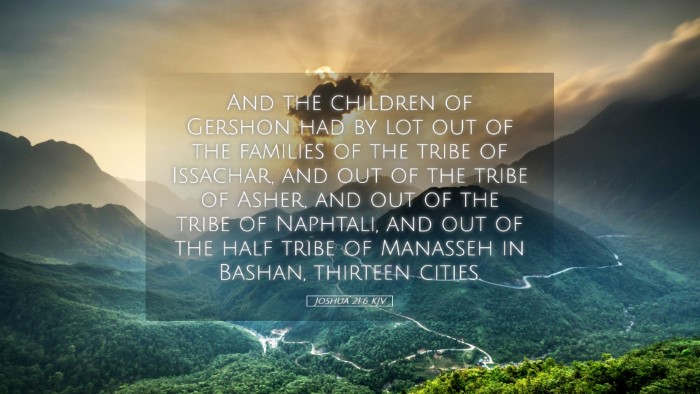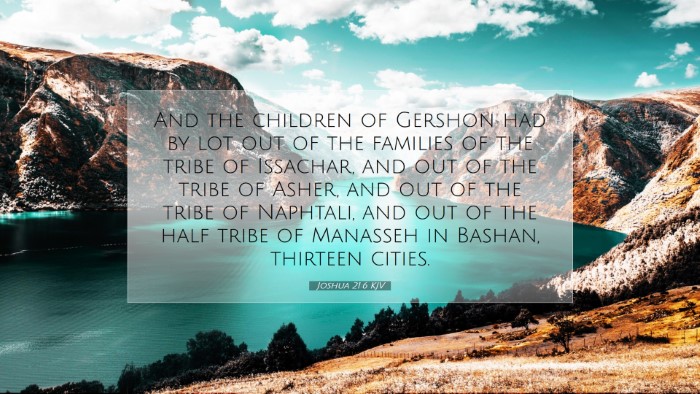Commentary on Joshua 21:6
Joshua 21:6 (ESV): "The descendants of Merari were allotted twelve cities from the tribe of Reuben, the tribe of Gad, and the half-tribe of Manasseh."
Introduction
The allocation of cities to the Levites, as described in Joshua 21, reflects God's faithfulness in fulfilling His promises. These cities served as dwelling places for the Levitical priests, who were tasked with the stewardship of worship and the instruction of the Law. The verse serves as a snapshot of the distribution of land and emphasizes the significance of the Levite's role in Israel's worship life.
Historical Context
In the book of Joshua, the Israelites were entering the Promised Land, and God, through Joshua, divided the land among the twelve tribes. The Levites, however, were not allotted land in the same manner. Instead, their rights centered on cities within the tribal lands, thus maintaining their distinct role. This particular distribution in Joshua 21:6 specifically mentions the descendants of Merari, one of the three families of the Levites.
Insights from Public Domain Commentaries
Matthew Henry's Commentary
Matthew Henry emphasizes the importance of the Levites and their cities in promoting the spiritual welfare of Israel. He notes that the allocation to the Merarites, receiving cities from Reuben, Gad, and the half-tribe of Manasseh, underscores the unity within the tribes and the central role of the Levitical order. Henry points out that this even distribution indicates a divine provision, showing that God's plans encompass every tribe and family.
Albert Barnes' Notes on the Bible
Albert Barnes elaborates on the significance of the Levitical cities being scattered among the tribes. He argues that this allocation was not just geographical but theological, highlighting God's desire for His presence to be accessible to all the Israelites through their ministers. Barnes stresses that the cities served as centers for worship and education in the Mosaic Law, thus fostering a collective identity within Israel centered on the worship of Yahweh.
Adam Clarke's Commentary
Adam Clarke provides a detailed analysis of the tribal divisions and the necessity for the Levites' integration among the various tribes. He clarifies that the cities allocated to Merari (and the Levites) ensured they were not isolated but working within the communities they served. Clarke comments on the distinction of cities being given from three distinct tribes, illustrating God's overarching plan for unity among the tribes of Israel despite their individual characteristics.
Theological Significance
This verse encapsulates a core theological theme of accessibility to God. The Levites, living among the people, acted as intermediaries between God and Israel. Their cities symbolize a divine arrangement for spiritual nourishment and guidance, ensuring that worship and obedience to God permeated throughout Israel.
Lessons for Pastors and Theologians
-
The Role of Leaders: Like the Levites, spiritual leaders today are called to serve their communities, deeply integrating into the lives of those they lead.
-
Priesthood of Believers: The distribution of cities suggests that every believer has a part to play in the work of ministry, promoting a theology of the 'priesthood of all believers.'
-
God's Provision: God's provision for the Levites serves as a reminder of His faithfulness in fulfilling His promises and providing for His people despite their circumstances.
Conclusion
Joshua 21:6 illustrates not only the practical distribution of land but also the profound theological implications of God’s provision for worship. The integration of the Levites as spiritual leaders among the tribes demonstrates God's intention to maintain His presence and guidance within His people. This commentary invites Christians today to reflect on their collective responsibility in fostering worship and unity in their communities.


